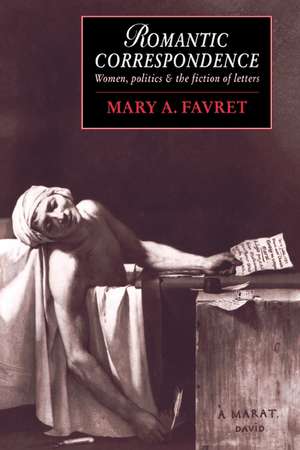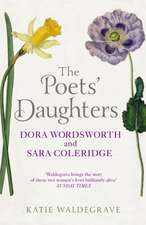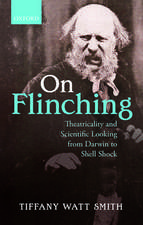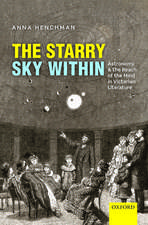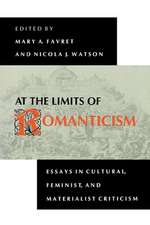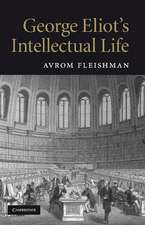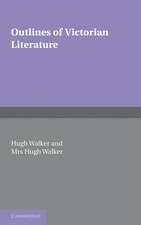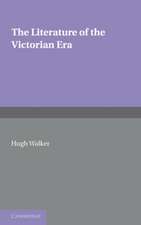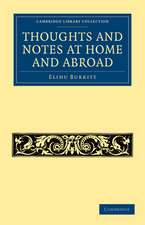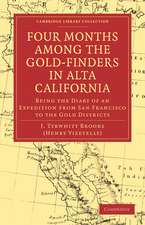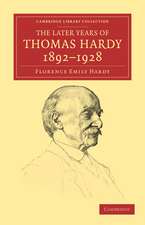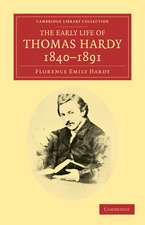Romantic Correspondence: Women, Politics and the Fiction of Letters: Cambridge Studies in Romanticism, cartea 1
Autor Mary A. Favreten Limba Engleză Paperback – 26 ian 2005
Din seria Cambridge Studies in Romanticism
-
 Preț: 215.29 lei
Preț: 215.29 lei - 9%
 Preț: 593.20 lei
Preț: 593.20 lei - 9%
 Preț: 592.76 lei
Preț: 592.76 lei - 9%
 Preț: 593.13 lei
Preț: 593.13 lei -
 Preț: 177.45 lei
Preț: 177.45 lei - 9%
 Preț: 627.85 lei
Preț: 627.85 lei - 11%
 Preț: 693.36 lei
Preț: 693.36 lei - 11%
 Preț: 695.06 lei
Preț: 695.06 lei - 8%
 Preț: 530.64 lei
Preț: 530.64 lei - 9%
 Preț: 592.48 lei
Preț: 592.48 lei - 9%
 Preț: 593.36 lei
Preț: 593.36 lei -
 Preț: 296.10 lei
Preț: 296.10 lei - 9%
 Preț: 668.29 lei
Preț: 668.29 lei -
 Preț: 267.72 lei
Preț: 267.72 lei -
 Preț: 203.67 lei
Preț: 203.67 lei -
 Preț: 284.17 lei
Preț: 284.17 lei - 11%
 Preț: 637.89 lei
Preț: 637.89 lei - 11%
 Preț: 640.30 lei
Preț: 640.30 lei -
 Preț: 283.25 lei
Preț: 283.25 lei - 11%
 Preț: 635.84 lei
Preț: 635.84 lei -
 Preț: 202.52 lei
Preț: 202.52 lei -
 Preț: 307.06 lei
Preț: 307.06 lei -
 Preț: 287.07 lei
Preț: 287.07 lei -
 Preț: 282.65 lei
Preț: 282.65 lei -
 Preț: 287.66 lei
Preț: 287.66 lei -
 Preț: 285.16 lei
Preț: 285.16 lei -
 Preț: 287.48 lei
Preț: 287.48 lei -
 Preț: 287.28 lei
Preț: 287.28 lei -
 Preț: 283.63 lei
Preț: 283.63 lei -
 Preț: 285.54 lei
Preț: 285.54 lei -
 Preț: 284.56 lei
Preț: 284.56 lei -
 Preț: 285.54 lei
Preț: 285.54 lei -
 Preț: 303.98 lei
Preț: 303.98 lei -
 Preț: 239.11 lei
Preț: 239.11 lei - 14%
 Preț: 682.45 lei
Preț: 682.45 lei
Preț: 405.48 lei
Nou
Puncte Express: 608
Preț estimativ în valută:
77.59€ • 81.01$ • 64.21£
77.59€ • 81.01$ • 64.21£
Carte tipărită la comandă
Livrare economică 04-18 aprilie
Preluare comenzi: 021 569.72.76
Specificații
ISBN-13: 9780521604284
ISBN-10: 0521604281
Pagini: 284
Ilustrații: 6 b/w illus.
Dimensiuni: 150 x 229 x 18 mm
Greutate: 0.42 kg
Editura: Cambridge University Press
Colecția Cambridge University Press
Seria Cambridge Studies in Romanticism
Locul publicării:Cambridge, United Kingdom
ISBN-10: 0521604281
Pagini: 284
Ilustrații: 6 b/w illus.
Dimensiuni: 150 x 229 x 18 mm
Greutate: 0.42 kg
Editura: Cambridge University Press
Colecția Cambridge University Press
Seria Cambridge Studies in Romanticism
Locul publicării:Cambridge, United Kingdom
Cuprins
Preface: The Public Letter, or 'La Lettre Perfide'; 1. History and the fiction of letters; 2. Letters or letters; politics, interception and spy fiction; 3. Helen Maria Williams and the letters of history; 4. Mary Wollstonecraft and the business of letters; 5. Jane Austen and the look of letters; 6. The letters of Frankenstein; Conclusion: the death of the letter–fiction, the Post Office and 'The English Mail Coach'; List of works cited.
Descriere
This study of correspondence in the Romantic period calls into question the common notion that letters are a particularly 'romantic', personal, and ultimately feminine form of writing.
